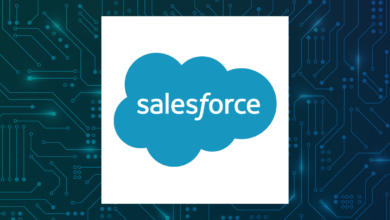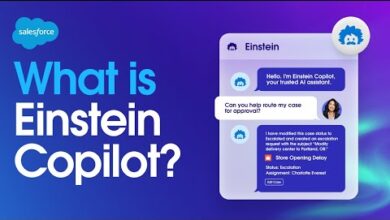Keep Humans on the Help Desk To Deploy Better CRM With AI

CRM deployments heavily doused with artificial intelligence how-to features may be bucking a continuing consumer preference for human support over AI-powered solutions.
Despite the growing emphasis on using AI in the workplace, a U.K.- and U.S.-based Workbooks survey reveals that human support remains the preferred choice for businesses implementing CRM solutions. The findings highlight the limitations and challenges of increasing reliance on AI within CRM systems.
The survey gathered insights from diverse businesses favoring a clear consensus that direct human contact and access to a support team during and after deployment are paramount. This revelation could spark compelling discussions and reshape perceptions within the CRM landscape, suggested Workbooks.
While AI-powered support may offer efficiency and cost-effectiveness, it falls short of meeting the nuanced needs of businesses seeking personalized assistance. Human support received an average rating of 8.4 out of 10, while access to an AI-powered support bot was rated the least important, with an average score of only 4.3 out of 10.
Workbooks reported that both single-vendor and multi-vendor setups received moderate ratings of around 7 out of 10 for their approach to support, indicating that the type of vendor does not significantly influence preferences for human support.
“While AI is beginning to play a role in streamlining aspects of CRM, our survey underscores the enduring value of the human element in implementing and supporting this business-critical software,” said Dan Roche, chief marketing officer at Workbooks.
“People crave more than just digital assistance; they seek the irreplaceable value of human support in navigating the complexities and nuances of CRM implementations,” he added.
Modifying AI Strategy: A Key Workaround
Chase Tarkenton, senior vice president at Boost.ai, suggested that the future of AI in customer service is not an AI-only world. In light of the Workbooks survey, that view also extends to internal support processes.
“It is becoming increasingly clear that a blend between human and virtual agents is the optimal solution for any business function that touches the customer journey,” Tarkenton told CRM Buyer in commenting on AI and humans working together. He was not responding to the survey findings but sharing a broader view.
Customers want options. In some industries, such as insurance, customers find engaging with AI beneficial in some aspects, like claims management. However, Tarkenton noted that they still prefer to engage live agents for conversations that may require a bit more of an empathetic touch.
It is not just for customers with no other useful purpose. Enterprises that have no interest in implementing customer-facing AI can still optimize the customer journey, he continued.
They can provide live customer service agents with a virtual counterpart that supercharges their capabilities. For instance, AI can help when engaging with a customer on a call or via chat by pulling up customer information faster or providing more targeted recommendations.
Also, the customer support role can change, noted Tarkenton. By offloading common questions to AI, the role of live agents will increasingly shift towards relationship management.
“This opens more possibilities to create unique and hyper-personalized experiences that keep customers coming back for life,” he said.
Clearing the AI Solutions Fog
The Workbooks survey underscores the growing disillusionment with increasingly AI-driven solutions in CRM deployments. Customer preference for human-handled feedback goes against policy decisions many organizations have already put into play.
When companies invest considerable funds in developing AI-assisted makeovers in CRM platforms, a customer-be-damned attitude might take over the decision-making process.
For example, Salesforce, a major player in the CRM industry, has doubled its Generative AI Fund from $250 million to $500 million and is set to invest $4 billion in the U.K. on AI innovation.
AI has its merits for CRM users in streamlining certain processes and deriving data-driven insights. However, according to Workbooks, it presently lacks the empathy, understanding, and adaptability inherent in human interactions.
The survey findings revealed an escalating desire for personalized support during CRM deployment. Workbooks noted that the key factors driving this preference:
- Human support builds a strong CRM foundation, forming the backbone of vital customer interactions. It takes human expertise to ensure a seamless and successful deployment.
- Human support addresses nuanced needs. AI bots might struggle to address the specific needs and challenges during deployment. They cannot provide the flexibility and expertise needed to navigate these complexities.
- Human deployment helps form trust and confidence in the vendor. Direct human interaction facilitates open communication, allowing businesses to voice concerns and receive personalized solutions throughout the process.
CRM Users Are Customers, Too
From a vendor’s perspective, Workbooks takes the survey findings to heart. It offers personalized support for its CRM software-as-a-service (SaaS) platform.
“We recognize that the key to CRM success lies in the relationship between the user and the vendor,” said Roche.
“By working directly with our customers and not outsourcing implementation or support to third-party partners, we ensure a seamless deployment process and projects that deliver the expected outcomes for our customers, on time and on budget,” he added.



